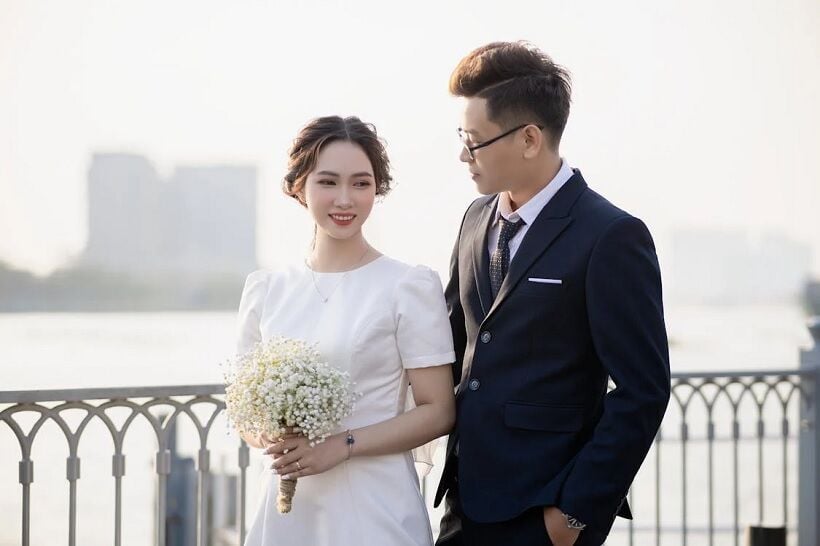Essential requirements for marriage in Thailand

Are you thinking about getting married in Thailand? This beautiful place is becoming a top choice for couples from all over the world. With its stunning scenery, it’s the perfect spot to show your views and celebrate your special day.
In this detailed article, we explore everything you need to know about getting legally married in Thailand. We’ll cover all the important details, from the necessary paperwork to traditional customs, ensuring you’re well-prepared for this new chapter. So, sit back and let us guide you through the steps of Thai marriage laws.
Legal prerequisites for marriage in Thailand
Planning a wedding in Thailand involves more than just organizing the celebration. This part of the guide explains the legal requirements and eligibility criteria you need to meet for your marriage to be recognized.

Considerations predicated on nationality
One’s nationality is a significant driving factor for anyone considering marriage in Thailand. In the context of a marriage union between a foreign entity and a Thai national, the foreign partaker is obligated to acquire a “Certificate of Legal Capacity to Contract Marriage” from their home country’s embassy based in Thailand. This documentation verifies that your current marital status adheres to the legal stipulations for marriage in Thailand.
For example, a citizen hailing from the United Kingdom must solicit this certificate from the British Embassy in Bangkok. It’s essential to note that procedures and processing durations at embassies may differ, hence the need for strategic and informed planning.
Age restrictions
In Thailand, the legal age for marriage, much like in numerous countries worldwide, is precisely 20 years. In situations where both parties involved are younger than 20, they must acquire written consent from their parents for the marriage to be lawfully recognized.
Consider this scenario: Suppose both individuals hail from the UK, where the legal marriage age is 18, but they are 19 years old, then obtaining parental consent becomes essential as they are under the required age in Thailand. Understanding these age restrictions supports the seamless execution of your marriage arrangements in Thailand.
Legal protocols for marriage certification
Marriage certification in Thailand incorporates several specific legal stages. This process necessitates stringent compliance with the local legal framework. Let’s delve into the step-by-step procedure and document requisites for a lawful marriage in Thailand.
Step-by-step guide to marriage registration
-
Affirm Eligibility: Both partners must ensure they meet the legal requirements for marriage in Thailand. For example, both parties have to be no less than 20 years old.
-
Compile Required Documents: Gather all relevant documents, such as identity proofs and a designated “Certificate of Legal Capacity to Contract Marriage.”
-
Verification of Documents: Submit these documents to either the local Thai District Office (Khet/Amphur) or the foreign embassy for verification purposes, depending on your national status.
-
Translation: If needed, seek a credible translation service to translate the documents pertinent to marriage into the Thai language.
-
Legalisation: Take the translated documents to the Ministry of Foreign Affairs in Thailand for legalization.
-
Marriage Registration: Lastly, take your now legalised documents back to the local District Office, where you can formally register your marriage.
Essential documentation for Thai nationals and global applicants
Thailand nationals need to submit documents such as a Thai Identity Card and House Registration Certificate (Tabien Baan). On the other hand, international applicants must provide their passport, proof of divorce (if applicable), and a ‘Certificate of Legal Capacity to Contract Marriage.’ It’s important to highlight that the necessity for translation and notarization could vary, depending on the specific context and the applicant’s country of origin.

Special cases and considerations
Continuing to dive into Thailand’s marriage prerequisites, the subsequent sections shed light on some unique situations and necessary health examinations.
Marriage involving foreign nationals
In a couple of dynamics wherein foreign nationals are involved, additional steps apply. Foreigners must acquire a legal affirmation, also known as an Affidavit of Freedom to Marry, from their embassy in Thailand. This document validates that the individual is currently unmarried.

For instance, if you’re a British national, you’d need to have your Affidavit of Freedom to Marry authenticated by the U.K. Embassy in Thailand. Additionally, you must translate any document not initially in Thai, into Thai. Notably, a well-recognised translator ought to execute the translation to ensure the translation’s legitimacy.
Pre-marital health checkup
Another essential aspect of the marriage requirement in Thailand is a pre-marital health checkup. Quite unusual, yet obligatory, a couple desiring to marry in Thailand must pass some medical examinations. The central aim of these examinations is to confirm that you’re in a good state of health to contract a marriage.
This step includes tests like chest X-rays and blood tests, key to illuminating possible health issues that could interfere with marital life. If you’re clear from all tests, a health certificate gets issued – an essential document for the marriage registration process.
Cultural insights
Gaining a comprehensive understanding of Thai marriage customs and requirements greatly enhances your preparedness for entering into marriage in this country. The cultural insights below illustrate the depth of this matter.
Understanding the difference between marriage registration and ceremonies
In Thailand, marriage transpires in two distinct phases. The first involves official registration, where all previously mentioned conditions must meet.
The second phase comprises the traditional Thai marriage ceremony, unrelated to the registration process. This event isn’t legally binding but holds significant cultural value concerning family integration, presenting dowries, and traditional practices like the Buddhist spiritual component and the ‘Khan Mak’ procession. Bear in mind, that partaking in these ceremonies doesn’t constitute a legal marriage in Thailand without undergoing the formal registration process.
So, you’ve navigated the intricate maze of Thai marriage requirements. You’ve grappled with the paperwork, understood the cultural customs, and confirmed your eligibility. You’re aware of the steps for marriage registration and the need for document verification and legalisation. You’ve recognised the importance of Thai marriage customs and the difference between the registration and the ceremony. Always remember, tying the knot in Thailand involves both an official registration and a culturally significant ceremony. So, as you embark on this journey, keep these crucial points in mind to ensure a smooth and successful marriage process in Thailand.
Explore our comprehensive article, “Tying the Knot: A Guide to Thai Weddings,” for essential tips and requirements on getting married in Thailand. Thai weddings are a beautiful testament to the country’s heritage, blending spirituality, community, and celebration.
Latest Thailand News
Follow The Thaiger on Google News:


























